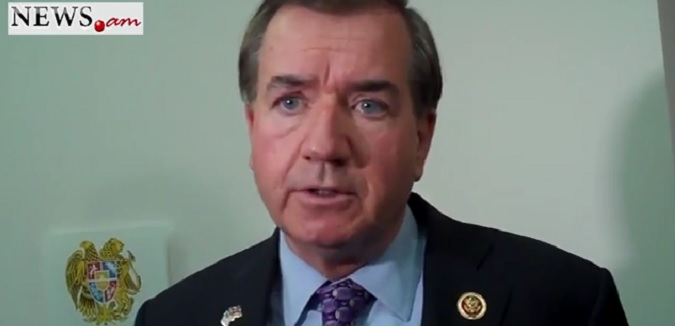Top foreign policy leaders from the House of Representatives set down clear red lines on Tuesday against providing Iran with any additional financial relief – not as an extension of the current interim Joint Plan of Action (JPA), let alone as the result of a comprehensive nuclear agreement – in the absence of Tehran adequately addressing long-standing Western concerns over the so-called possible military dimensions (PMDs) of its atomic program.
Al Monitor’s Congress Pulse opened its coverage of a House Foreign Affairs panel on verification by assessing that “House members sent the White House a clear message… that Congress won’t ‘budge an inch’ on sanctions on Iran unless the country comes clean about the suspected military dimensions.”
The outlet quoted members from both parties expressing what amounted to bipartisan unity:
“Before we would ever consider the possibility of extending this interim agreement for another six-month period, certainly we should expect that the Iranians would at least be willing to grant that access to the areas where for more than a decade we’ve had these concerns,” said Rep. Ted Deutch, D-Fla., the top Democrat on the Middle East and North Africa panel.
“At a bare minimum, Congress should be informed in a very detailed nature of whatever talks have taken place surrounding that issue before we should be asked to budge an inch on any sanctions.”
Committee chairman Ed Royce, R-Calif., embraced Deutch’s concerns and invited him to a side conversation during the hearing, which was dedicated to verification of an Iran nuclear deal.
“This committee may soon be asked to judge a ‘comprehensive agreement,'” Royce said in his opening statement. “Central to this would be evaluating the verification measures needed to ensure Iran can’t cheat. What types of conditions should U.S. negotiators be demanding? What are the limits of verification?”
The two substantive issues – the specific debate over PMDs and the need to verify Iranian compliance with any deal – are closely linked. The West’s concerns over PMDs extend beyond outright weaponization work that Iran is suspected of having conducted, and into the Iranian military’s broader entanglement in Iran’s atomic program. Iranian military officials are suspected of having overseen work on a range of activities from uranium mining all the way into enrichment. International inspectors would require disclosure of those activities, in turn, to adequate verify that Iran was upholding any comprehensive deal.
Olli Heinonen – a former deputy director of the U.N.’s nuclear watchdog and currently a senior fellow at Harvard University’s Belfer Center for Science and International Affairs – explained to journalists on a Monday conference call held by The Israel Project that forcing Iran to document such PMD-related activities was necessary to “understand the scope of the program… and set[] the baseline for the successful monitoring.”
Washington Institute Managing Director Michael Singh had emphasized half a year ago that “[w]ithout insight into the full extent of Iran’s clandestine nuclear activities, no amount of monitoring and inspection can provide true confidence that Iran lacks a parallel program beyond inspectors’ view.”
David Albright and Bruno Tertrais – respectively the president of the U.S.-based Institute for Science and International Security and a senior research fellow at the Fondation pour la Recherche Strategique (FRS) – had echoed the point in the Wall Street Journal:
To be credible, a final agreement must ensure that any effort by Tehran to construct a bomb would be sufficiently time-consuming and detectable that the international community could act decisively to prevent Iran from succeeding. It is critical to know whether the Islamic Republic had a nuclear-weapons program in the past, how far the work on warheads advanced and whether it continues. Without clear answers to these questions, outsiders will be unable to determine how fast the Iranian regime could construct either a crude nuclear-test device or a deliverable weapon if it chose to renege on an agreement.
[Photo: NEWS.am English / YouTube]




